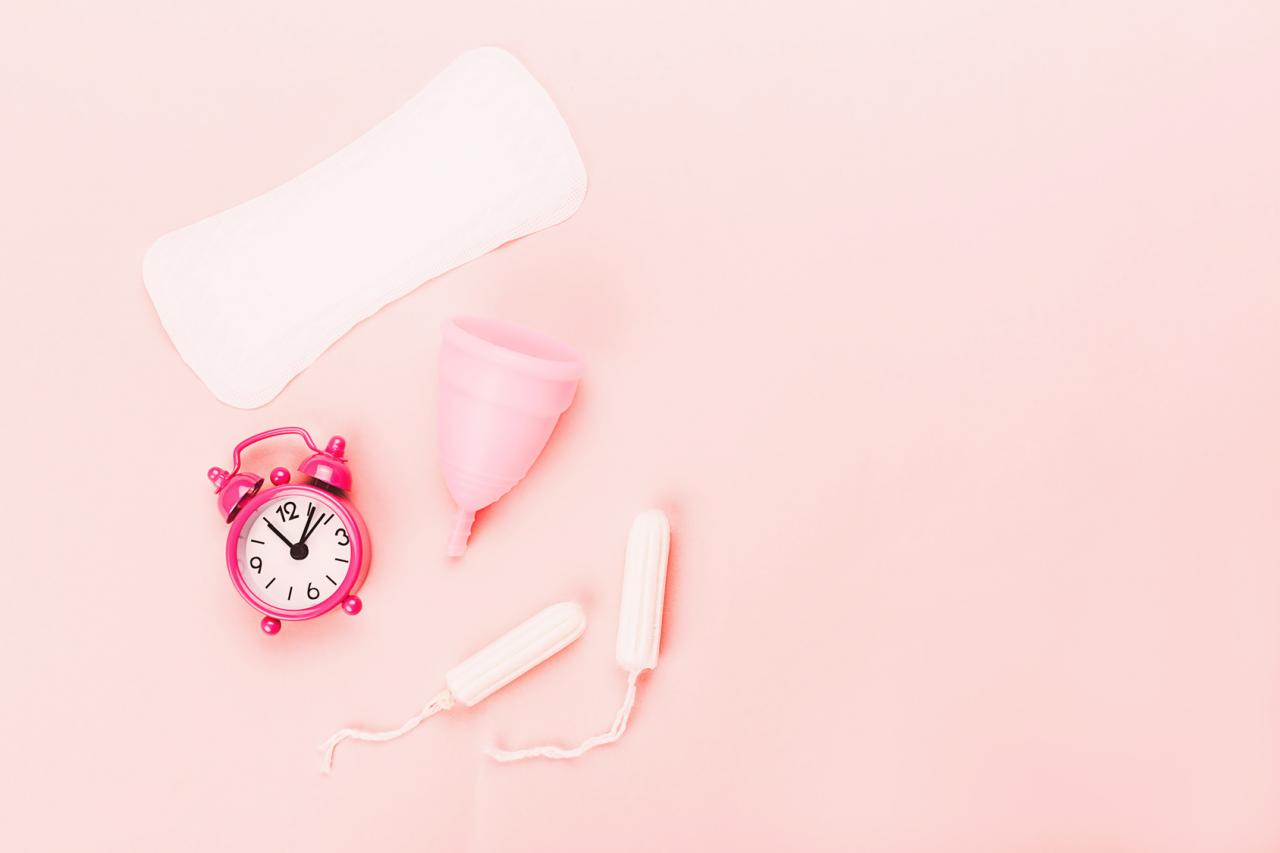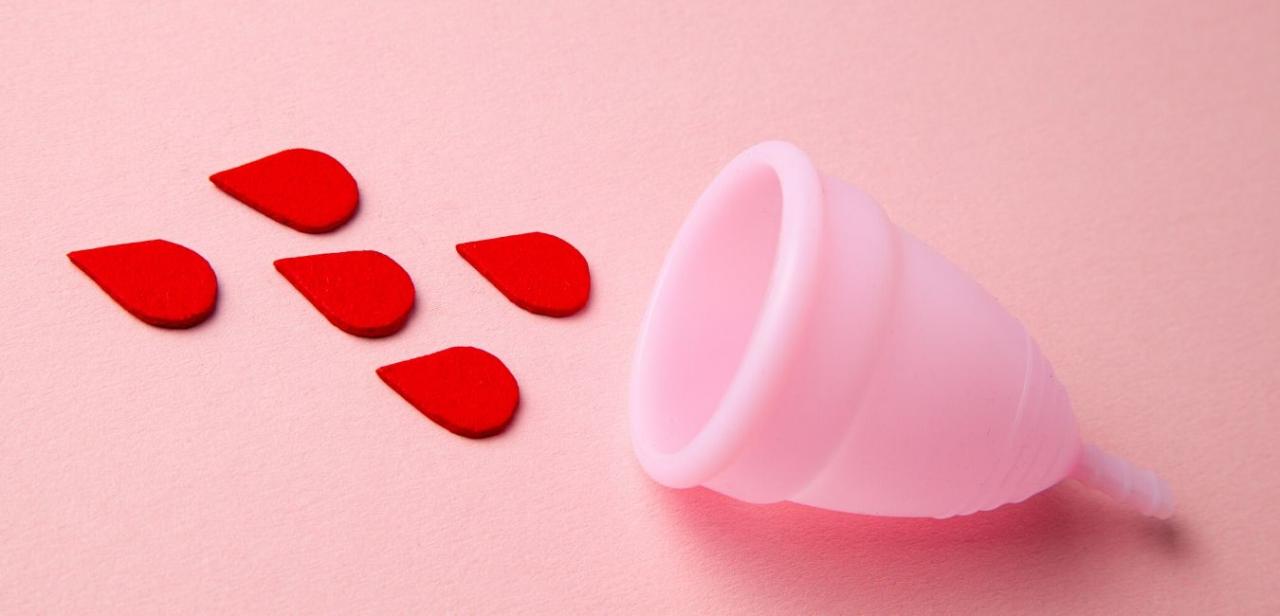 Andres Rodriguez/PhotoSpin
Andres Rodriguez/PhotoSpin
The menstrual cycle occurs in all females from the onset to puberty (average age 11 or 12 years) to the menopause in middle age (average age between 45-55). The lining of the uterus is shed via vaginal bleeding when a girl or woman has not conceived a pregnancy.
The menstrual period lasts between two days and seven days, usually occurring once every 28 days, although anything from once every 24 days to once every 35 days is considered normal.
If you are having a period more than once every 24 days, it is considered an irregular cycle.
Having a period once every two weeks, or twice a month is abnormal and you should see your doctor because you may become anemic if you are having very frequent periods. They are sometimes a sign of infection or other medical problem that would need treatment.
Reasons for a period every two weeks could be:
• Dramatic weight loss or gain -- This changes the hormones in the body and these are responsible for directing when the period will start.
• Excessive exercise -- This too disrupts hormones.
• Stress -- Exams, family argument, financial worries, divorce, even a holiday can cause a temporary change in your menstrual cycle.
• Illness and/or medications -- Some medications can affect your cycle. Talk to your doctor about altering or stopping your medication if you think this is happening.
• Uterine problems such as polyps, cysts, fibroids or tumors (either benign or cancerous).
• Sexually transmitted infections -- These can cause bleeding in between periods which can be mistaken for a period.
• Thyroid problems -- Thyroid disease could cause a thickening of the uterine lining, resulting in more bleeding than normal.
• Reactions to contraceptive methods -- Sometimes the pill, depo provera injections or the copper-only IUD can result in a change in your cycle.
~ The pill and IUD can make you bleed in between periods, known as "breakthrough bleeding" and this may be mistaken for a period.
~ The IUD can also make your periods heavier.
~ The depo-provera injection can make your cycle irregular, however, it often stops your period altogether instead of making it more frequent.
~ Sometimes changing or stopping your method of contraception can cause a sudden drop in hormones and this can result in a change to your cycle.
• Onset of menopause -- In women aged 45 and over, having periods every two weeks can be a sign that you are about to go through menopause. It can be a sign of ovulation beginning to shut down. If you are under 45, having irregular periods in addition to other symptoms commonly associated with menopause, may signal premature ovarian failure.
Treatment
Sometimes treatment is not necessary, for instance, if the disruption in cycle is due to stress, weight loss or gain, or illness, it may be temporary and may correct itself in time.
However, to rule out other possibilities your doctor will perform a pelvic examination. Your doctor may also take a sample of the uterine lining as well as doing an ultrasound scan to see if there are any obstructions in the uterus, such as fibroids.
If any obstructions are found, you can be referred for surgery to have them removed. If any cancer is found, you will be referred to an oncologist who will plan your care with you.
Sexually transmitted infections can be treated with antibiotics (and the use of condoms to prevent further infections). Your partner may have to be treated as well.
If the problem is caused by a contraceptive device or medication, this can usually be changed to stop the problem.
Heavy and/or frequent periods can sometimes be controlled by certain brands of the pill. If you find they are really disrupting your life, for instance, you are bleeding through your clothes, have to miss work days and can’t plan your holidays, this may be an option depending on your medical history.
Hormone treatment could also be given in this scenario, if you have thyroid disease or if you are starting menopause.
Sources:
Periods, Heavy. NHS Choices. Web. 26 May 2012. http://www.nhs.uk/conditions/periods-heavy/pages/introduction.aspx
Heavy Periods (Menorrhagia). WebMD. Retrieved May 27, 2012.
http://women.webmd.com/guide/heavy-period-causes-treatments
Top Ten Causes of Heavy Menstrual Bleeding. About.com Women's health. Retrieved May 27, 2012. http://womenshealth.about.com/od/abnormalbleeding/a/causemenorrhagi.htm
Irregular Periods Every Two Weeks, 34 Menopause Symptoms. Web. 26 May 2012.
http://www.34-menopause-symptoms.com/irregular-periods/articles/irregular-periods-every-two-weeks.htm
Premature Ovarian Failure, National Insititute for Child Health and Human Development. Web. 26 May 2012. http://www.nichd.nih.gov/health/topics/Premature_Ovarian_Failure.cfm
Joanna is a freelance health writer for The Mother magazine and Suite 101 with a column on infertility, http://infertility.suite101.com/ She is the mother of five children and practices natural childbirth, delayed cord clamping, full term breastfeeding and organic food diet.
Reviewed May 28, 2012
by Michele Blacksberg RN
Edited by Jody Smith






Add a Comment221 Comments
Hellow i am 19 years i had my regular periods for 6 days but after 4 or days again i had periods and its 8th day since i am on my periods :( what is the reason ?
April 20, 2015 - 1:13pmThis Comment
Hello Anonymous,
Has this happened before?
Polymenorrhea is the medical term for abnormally frequent menstruation. This condition frequently causes irregular ovulation. When it lasts for a prolonged period, its underlying causes can lead to infertility.
Several causes are mentioned in the above article. Please consider scheduling an appointment with a gynecologist, if this pattern persists.
Regards,
April 21, 2015 - 9:32amMaryann
This Comment
I am 27 years old and have been on the pill since I was 17. And my periods are or ally like clockwork. But the last 2 months, my cycle has started about 4 or 5 days early, but instead of a normal cycle the discharge is more of a brown color for like 3 to 4 days, then normal bleeding for like 3 to 4 days (like nornal) then more brown discharge for another couple days after. What could that be?
April 20, 2015 - 9:24amThis Comment
Hello Anonymous,
Brown vaginal discharge during a period is old blood or retained uterine lining from the previous period.
Consult your gynecologist about this. Please keep us updated once you are given an explanation.
Regards,
April 20, 2015 - 9:45amMaryann
This Comment
Hi, im 18 years old. I was on depo for a year and a half and then got off of it. Once i was off for a year my periods came back and they were regular 28 day cycles. I downloaded a period calendar to know when i would need tamps. Well, i start my period and it lasts for about four days and its normal but then every time the period calendar says im starting my ovulation week i start bleeding. And its not light and spotting its full blown bleeding and its heavy and i cramp really bad. This is the second month this has happened.
April 16, 2015 - 12:10pmThis Comment
Hello Anonymous,
Sounds like a hormonal imbalance. Give your gynecologist a call.
Regards,
April 17, 2015 - 8:34amMaryann
This Comment
I had my period last week and it stopped for about three days then I got it back? What can this be? Do I need to see a doctor ? I've been losing a lot of weight within days can this be the reason?
April 14, 2015 - 7:40pmThis Comment
Hello Anonymous,
Extreme weight loss triggers an effect that suppresses the hypothalamus, which has a very important role in the secretion of a hormone that sets the menstrual cycle in motion.
Irregularities in the menstrual cycle result.
Regards,
April 15, 2015 - 8:15amMaryann
This Comment
I just had a period last week and it was really light. Then I had sex on Saturday night and now my period came back today. Is that normal? It has never happened toe before. I normally know exactly when I'm going to start. Could this have something to do with taking the morning after pill about a month ago? I have taken those before and again no issue like this.
Thanks!
April 13, 2015 - 7:02pmThis Comment
Hello Anonymous,
This change in your menstrual cycle can be linked to the emergency contraceptive. Changes in the menstrual cycle are a reported side effect.
Depending on how frequently you have taken emergency contraceptives, a hormonal imbalance might exist.
Consider scheduling an appointment with a gynecologist. You want to know if something other than a side effect is going on.
Regards,
April 14, 2015 - 9:41amMaryann
This Comment